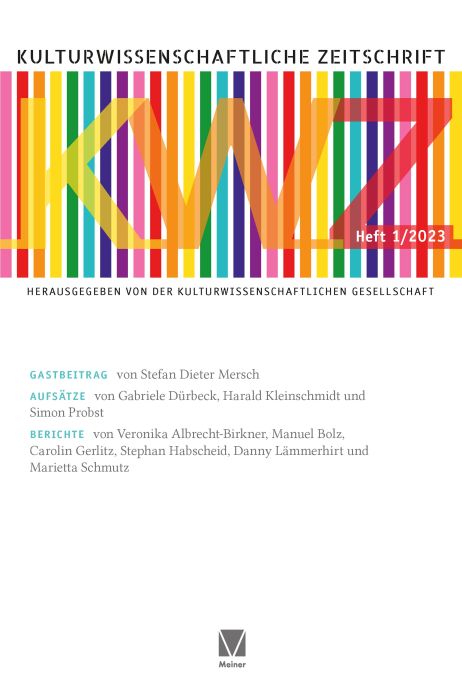Kulturwissenschaftliche Zeitschrift 1/2023

Beschreibung
Bibliographische Angaben
| Einband | |
|---|---|
| DOI | |
| Auflage | |
| ISBN | |
| Sprache | |
| Originaltitel | |
| Umfang | 146 |
| Erscheinungsjahr (Copyright) | 2024 |
| Reihe | Kulturwissenschaftliche Zeitschrift |
| Herausgeber/in | Kulturwissenschaftliche Gesellschaft |
| Beiträge von | Veronika Albrecht-Birkner Manuel Bolz Gabriele Dürbeck Carolin Gerlitz Stephan Habscheid Harald Kleinschmidt Danny Lämmerhirt Dieter Mersch Simon Probst Marietta Schmutz |
| Hersteller nach GPSR |
Felix Meiner Verlag GmbH |
Service
Einzelartikel als PDF
Open Access unter CC-BY-SA 4.0 Lizenz
Open Access unter CC-BY-SA 4.0 Lizenz
Open Access unter CC-BY-SA 4.0 Lizenz
Open Access unter CC-BY-SA 4.0 Lizenz
Open Access unter CC-BY-SA 4.0 Lizenz
Open Access unter CC-BY-SA 4.0 Lizenz
